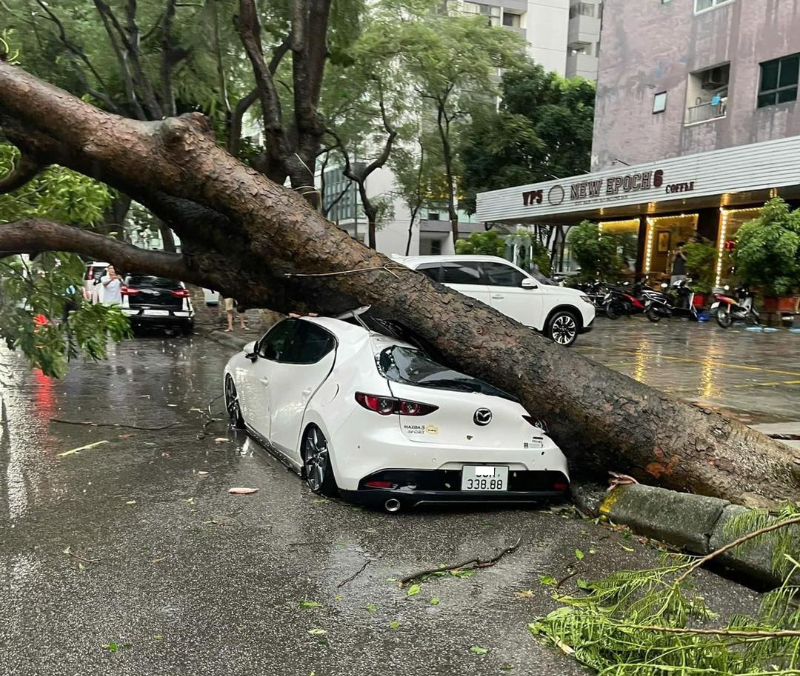
A former sales employee of a non-life insurance company said that no insurance company in principle would collude with partners to defraud insurance funds. Such actions would lead to financial losses, contradicting the core goal of profitability.
According to this source, car insurance fraud, when it occurs, typically involves either collusion between insurance company employees and repair garages to siphon funds, or secret agreements between garages and policyholders.
“Insurance companies are joint-stock entities with capital contributed by shareholders. Their money isn’t free, so they wouldn’t foolishly violate their own principles,” the source explained.
For car insurance policyholders, when damage occurs requiring repairs, owners generally take their vehicles to garages designated by the insurer. Each insurance company has a list of partnered repair shops.
In such cases, fraud may follow a common script: the vehicle’s damage estimate is inflated, sometimes up to three times the actual cost.
“However, no single insurance employee can execute this alone,” he noted. “Claims require approval from at least a department head specializing in compensation, and often a higher authority, such as a director or deputy general director.”
The source revealed a potential loophole: if a policyholder pays premiums for 2–3 consecutive years without filing claims, meaning no compensation costs, the company may offer a “gratitude” package - free car care, paint polishing, maintenance, or replacement of parts nearing their expiration. This practice can be exploited by employees who inflate service costs to pocket money.
A sales employee at a financial leasing company shared that 100 percent of their clients are required to take insurance policies for leased assets throughout the lease term.
The beneficiary is the leasing company, because the property is registered in the company's name. The finance company also does not interfere with the decision on which insurance company the client buys from.
However, due to cross-selling products within the same system, financial leasing companies often “suggest” customers buy insurance from insurance companies under their parent bank. Insurance fraud, according to him, is most common when garage owners and vehicle owners have a secret agreement. The common scenario is inflating repair prices, or “drawing” additional repair and replacement items.
Inspectors’ findings
In late April, the Insurance Management and Supervision Agency under the Ministry of Finance (MOF) exposed multiple violations at VNI, particularly concerning motor vehicle insurance.
VNI’s 2023 report showed that revenue from mandatory civil liability insurance for vehicle owners exceeded VND625 billion, with VND110 billion from motorcycles and VND514 billion from cars.
The report also showed that VNI handled 2,017 mandatory insurance claims in 2023, paying out VND108.5 billion. However, only 66 claims, with a compensation total of VND4.4 billion, involved motorcycles, while VND104.1 billion was paid for cars.
When selecting a sample of five files according to VNI's report, inspectors found that the compensation payment went very slowly. It sometimes took more than 300 days to resolve a case, even in some cases lasting up to 544 days or 607 days, while the prescribed time limit was 15-30 days.
VNI’s payouts for mandatory civil liability insurance were also incomplete and inaccurate. For example, in claim BT652100021.BT for a fatality, VNI paid only VND30 million . This compensation level was not determined according to the legal regulations on compensation for loss of life (VND150 million), or according to the agreed level between the car owner and the victim (VND110 million).
The agency also found big problems when inspecting UIC. In 2023, UIC processed 12 car-related mandatory civil liability claims, paying VND550 million, with no motorcycle claims.
Notably, the company was found applying a compensation deduction that was not in accordance with regulations.
In one case, the company applied a 30 percent deduction on compensation for car physical damage, which was higher than the deduction prescribed in the Car Physical Damage Insurance Rules approved by MOF (the deduction is 10 percent of the compensation amount).
In addition, in two compensation cases, UIC applied a 30 percent deduction on compensation for physical damage car insurance but without any reason. The total amount of compensation deducted was more than VND45.2 million.
Tuan Nguyen